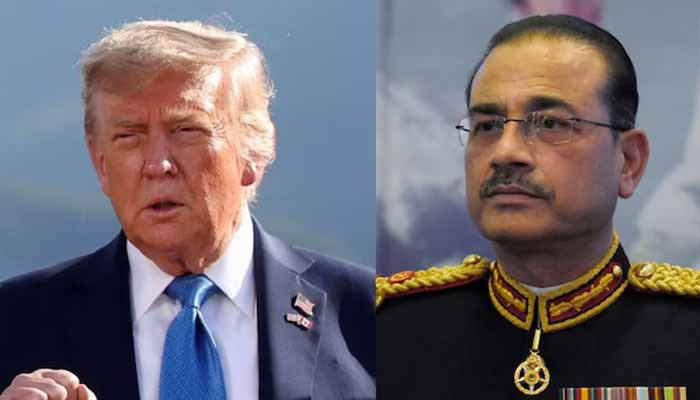In an unprecedented and unanticipated diplomatic move, Field Marshal Syed Asim Munir became the first Chief of Army Staff in Pakistan’s history to hold a face-to-face meeting with a sitting US President at the White House – unaccompanied by any member from civilian leadership from Islamabad.
The landmark meeting was unconventional by all means, as a serving Pakistani army chief was formally welcomed at this high level of engagement, distinctively, without any political portfolio or having authority under martial law.
This event represents a pivotal moment in the US-Pakistan relations and reflects the rising international prominence of Pakistan.
Before we delve deeper, let’s take a brief overview of how US-Pakistan relations have evolved under the leadership of Pakistan’s military chief, Field Marshal Asim Munir.
General Asim Munir’s maiden visit to the United States as an army chief in December 2023 marked a notable advancement in US-Pakistan military and diplomatic relations, reflecting a strategic recalibration of partnership with the superpower.
During that visit, the army chief had held extensive meetings with senior US defense and security officials, including the commander of the US Central Command (Centcom) Gen Michael Erik Kurilla and then Secretary of State Antony Blinken and Secretary of Defense Lloyd Austin.
At the conclusion of that visit, both sides acknowledged the need for sustained collaboration in a rapidly evolving geopolitical environment.
A US congressional delegation also visited Pakistan a couple of months ago which called on Field Marshal Asim Munir at the General Headquarters (GHQ) in the garrison city, Rawalpindi.
Now if we look into US-Pak relationship’s renewed trajectory after President Donald Trump’s return to the White House, the first among the many breaths of fresh air for Pakistan came when in February this year, the Trump administration lifted the freeze on $397 million in funding for a US-backed programme in Pakistan, aimed at ensuring that American-made F-16 fighter jets are used solely for counterterrorism operations.
The second recognition for Pakistan’s pivotal role in fighting the war on terror came directly from US President Trump when he revealed during his first congressional address that the person responsible for killing 13 US service members during the withdrawal from Afghanistan in 2021 had been arrested with the help of Pakistan and was now on his way to the United States to face justice.
Third acknowledgement came from top military leader of the Centcom commander General Kurilla when he praised Pakistan as a “phenomenal partner in the world of counterterrorism”, citing the South Asian country’s war against separatist elements in Balochistan and groups like the Islamic State-Khorasan (IS-K).
And now after Trump’s high-powered meeting with Field Marshal Munir in the White House, for which he thanked him for stopping the war against India and apparently sought his support to defuse tensions by playing his role as the neighbour of Iran to avoid hurtling towards further clash between Iran and Israel.
